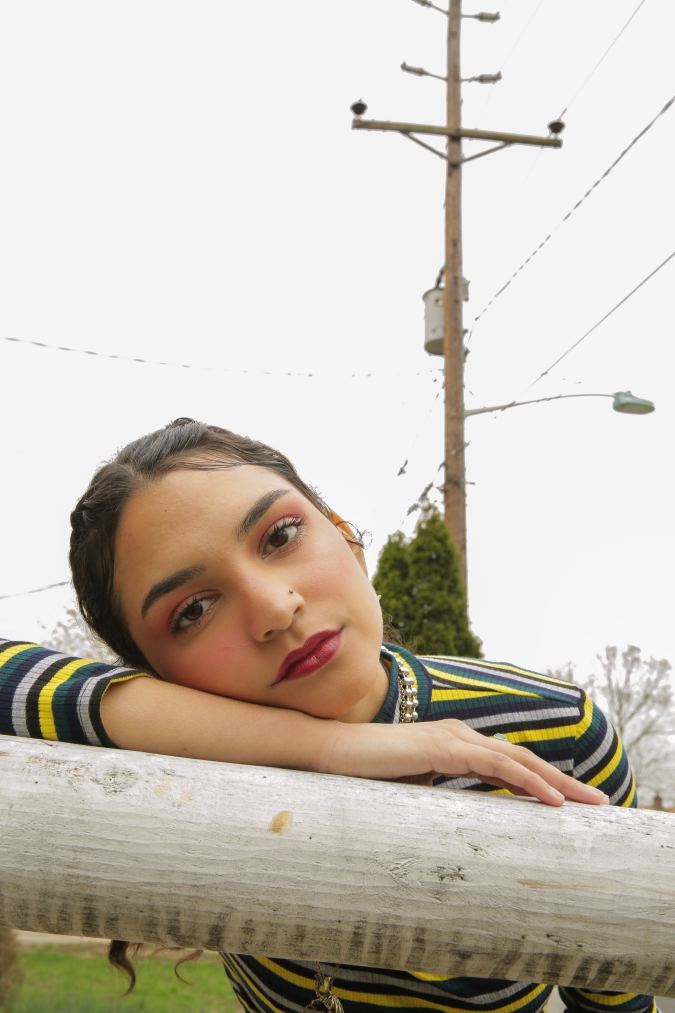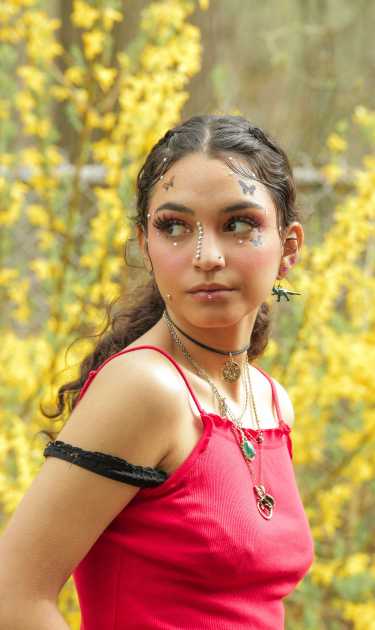Story by Matthew Ismael Ruiz
Photography by Itzel Alejandra Martinez
Much like the artist that created it, Ambar Lucid’s discography is still young, with infinite room for growth. The 18-year-old U.S.-born singer/songwriter was born Ambar Cruz to a Dominican mother and a Mexican father in New Jersey. Her debut LP, Dreaming Lucid, comprises gorgeous bedroom daydreams and sparse, moody compositions with ample negative space for her voice to breathe. It’s a voice that aches with deep longing, a singular instrument with inflections and tones that recall the likes of Amy Winehouse and Tori Amos. Her lyrics are casually bilingual, slipping between Spanish and English when it suits her mood or the composition.
Self-taught on the piano, ukulele and guitar, she writes folk songs imbued with emotional maturity and soul. Her first songs borrowed guitar tones from King Krule, channeling Pink Floyd’s eerie atmospherics with just a laptop and a copy of Garageband. She may only have a handful of songs to her name, but her talent as a songwriter is undeniable. “Medicate my soul, let me drift away/I don’t want to know what it is I have to pay,” she sings on the EP’s titular track. It’s a portrait of an artist still discovering herself, growing into her own skin.
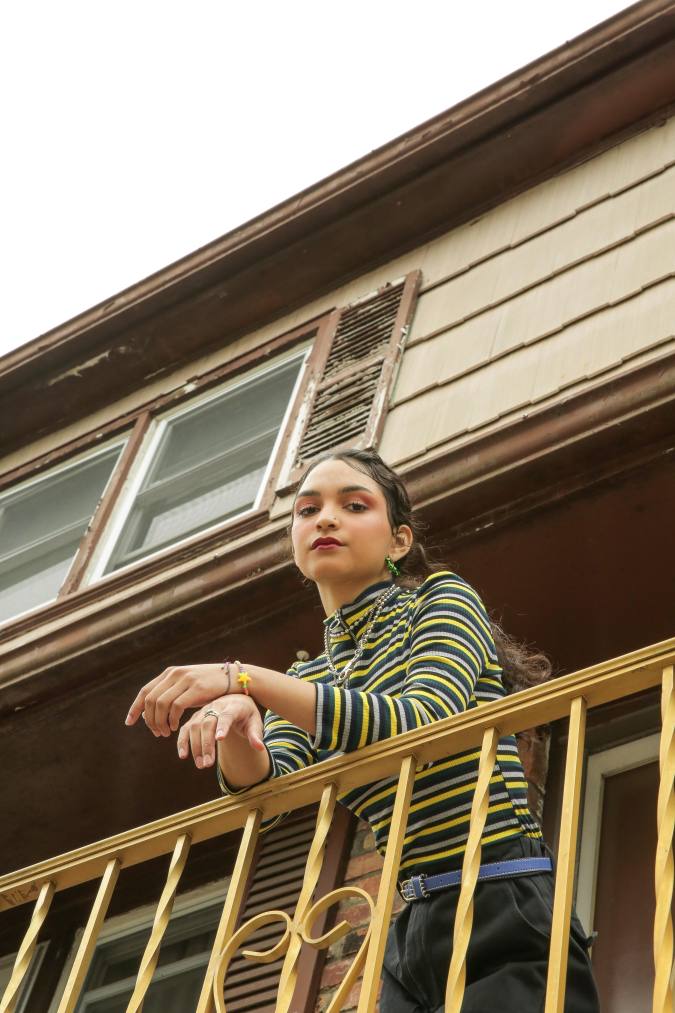
When we visited her childhood home in Little Ferry, New Jersey, a stone’s throw from the shadow cast by the Manhattan skyline, we were struck by her presence; though she very much looks and speaks like a teen, her thoughts and perspective revealed wisdom beyond her years. There’s a precociousness inherent to the work of a teen who writes a song called “A letter to my younger self;” life’s rearview usually comes into clearer focus the longer we live. But her life has accelerated that self-reflection, and she feels it: “I’ve just seen a ghost/The memories I hate the most/Reflections I feel/Were something I forgot were real.” It’s a recollection of a time when she felt rudderless, unable to exert any control over the direction of her life. She sings to her younger self because she understands that girl better than she could have at the time. “Quítate ese miedo/You’ll be a lot more trust me, yo te entiendo,” she sings. And she does.
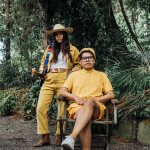
Ambar has lived most of her life away from her father, who was deported from the United States when she was just 6 years old; he now lives in San José del Cabo, Mexico. Her memory of his departure is limited; her mom and abuela help fill in the gaps.
“The last time I saw him, we were dropping him off at the airport,” she says. “I was crying and I was grabbing onto him, I was like, ‘Please don’t go, please don’t go!’”
Ambar would occasionally get to talk with him on the phone, but as time passed, the distance between her and her father grew. It’s a tragic story, a trauma shared by the millions of people with families torn apart by arbitrary borders and oppressive immigration laws. Part of the horror is how the whole thing is normalized, neither remarkable or unique, just another father separated from his children.
“I don’t think a lot of it,” she says. “Not growing up with my dad, I don’t really think affected me that much. It was just kind of something that I got used to. I was like, ‘All right, I guess I don’t have a dad.'”
And yet, even if her father is never directly addressed in her music, his absence informs so much of her perspective. The “former self” she addresses in “A Letter…” is the 7- to 12-year-old Ambar, the one who spent the first five years without her father. With her dad gone and the rest of her family working, she would spend each day after school babysitting her little brother until they returned at midnight.
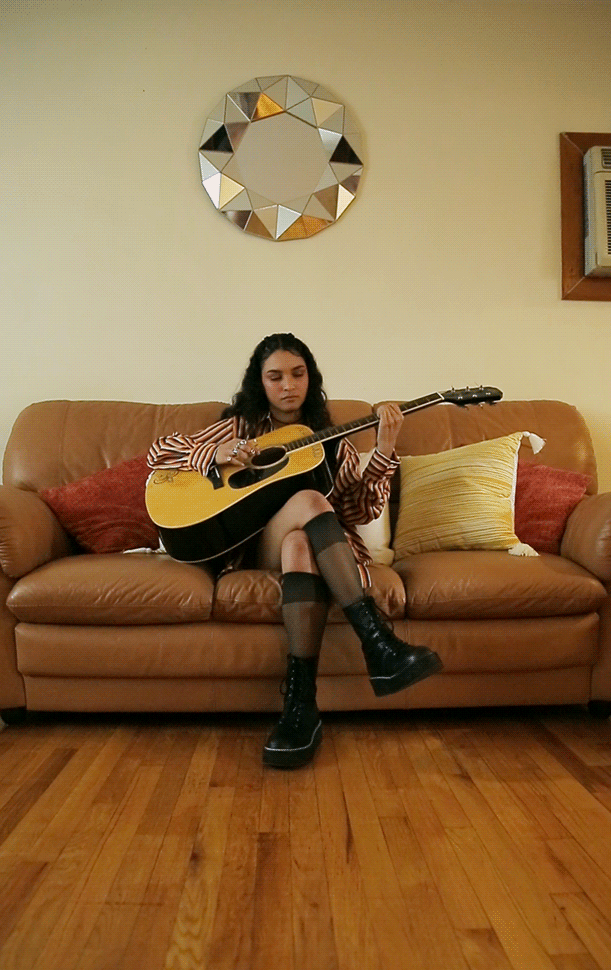
“I felt very, very alone…It would just be me and him, and we would literally be alone all day, every day, and sometimes on the weekends, too,” she says. “I felt like I didn’t have anyone. I felt like I didn’t have anybody to talk to.”
A child’s life is typically governed by a variety of forces they have no control over: the government, their school, their parents. For Ambar, writing music was a way to seize some of that control for herself, to create a world in her bedroom where she could shape her own reality. “I loved the feeling of writing a song. I loved that I had control to say whatever I wanted to say. I loved that I had control of creating whatever melodies I made.”
And it didn’t take long for that world she’d created to manifest. She cut vocals as voice memos in her bathtub and chopped them up on Garageband, inspired by Steve Lacy. “If Steve Lacy could do that, like anybody could do that!” she told herself and put the songs on SoundCloud. The songs she posted attracted the attention of Finding Everest’s Kerick Stevens, who flew her and her mom out to L.A. Cruz still had a year of high school left but knew she wanted to do music full-time as soon as possible. Stevens helped make her case, showing her mom a career in music would actually look like. She took meetings and got time with producers in a studio that wasn’t her bathtub, getting a taste of her new life. She signed Stevens to manage her career and started her next chapter with her mother’s blessing.
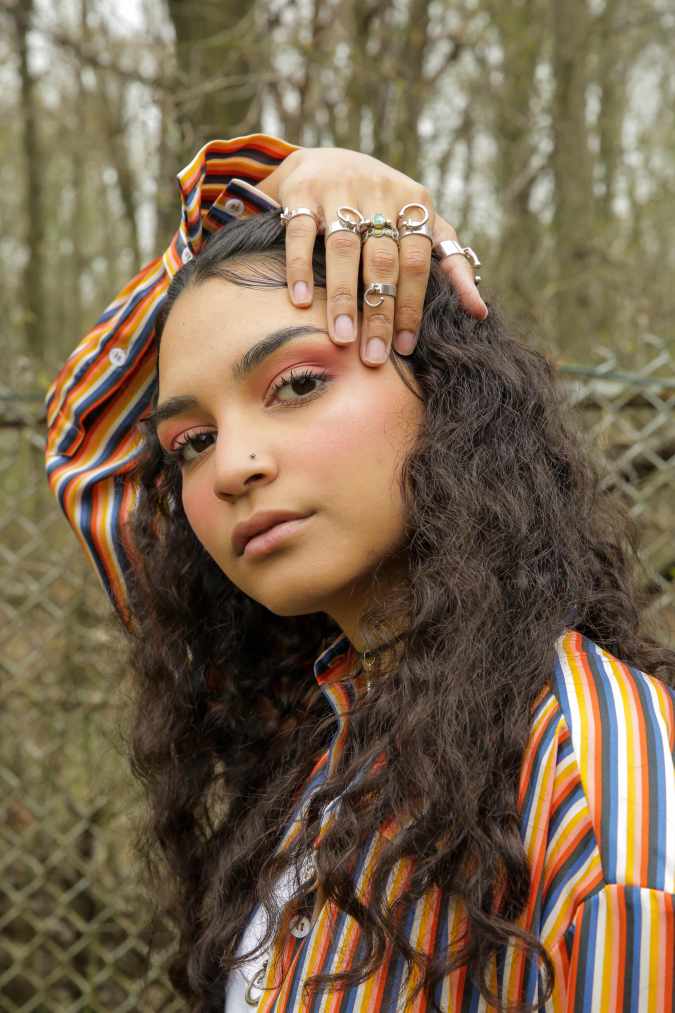
These days, the 18-year-old Cruz is an adult, fully in control of her art and her destiny.
She’s graduated from SoundCloud loosies to having her debut EP across all DSPs. She’s shot multiple videos, including a one-minute manifesto filmed by fashion it-boy Aidan Cullen. In a heartwarming collision of art and life, she was able to travel to Cabo San Lucas to shoot a documentary and the video for “A letter…” Just 30 minutes from where her father lives in San José, she was able to go see him for the first time in 12 years, as well as meet her little sister, whom she cast her as the titular former self in the music video.
“She loved it. She loved filming,” Cruz says of her sister’s role in the video. “It was just a very overwhelming experience. I cried so much on camera…so, so, so, so much.”

The reunion with her father was understandably emotional and having it captured on camera for a documentary certainly created somewhat of a spectacle. But they were able to spend some time alone away from the gaze of the camera lens, reconnecting and rebuilding. “Seeing him there, seeing him in person again, definitely helped our relationship,” she says. “We’re a lot closer now than we ever were [when I was] growing up.”
The story of Ambar Lucid has so far been one of metamorphosis, a youth lived in chrysalis, dreaming of the life she’d lead on the day she’d be able to break out, spread her wings and fly away to her new life. She’s no longer in the place she was when she wrote the songs that would become Dreaming Lucid; She’s moved from her childhood home to Los Angeles and upgraded from her bathtub to recording studios. Cruz first generated attention for music that she owned and controlled completely, but she’s wise enough already to understand the challenge – and the importance – of knowing which advice to listen to and which to ignore. “I’m very stubborn,” she admits. “I really have to analyze certain people’s opinions. I always have to be like, ‘All right, do I listen to them? Or do I just do what I want?’ I really have to consider my options.”
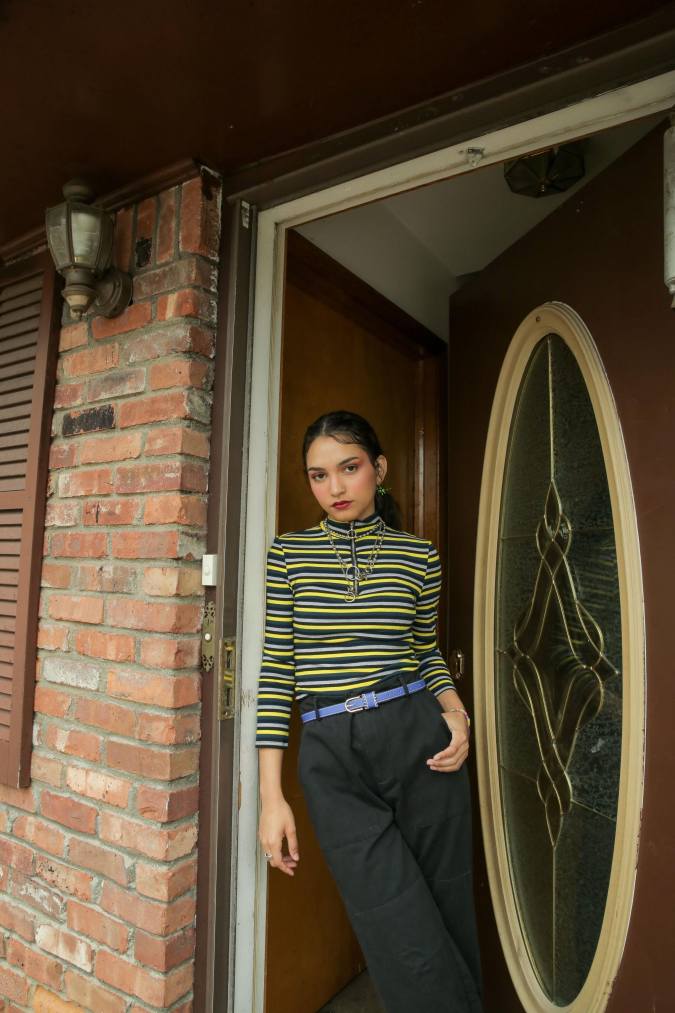
Cruz hopes that the music might help others in the same place she used to be. She plans to eventually collaborate with other artists (Alice Phoebe Lou and Mon Laferte top her list) and take her music all over the world, visiting every continent – maybe even Antarctica. Wherever her dreams take her from here, it’s sure to be beautiful – and we can’t wait to hear it.
In the “Dreaming Lucid” video she shot with Cullen, she explains that she “knew that where I was at the time wasn’t where I wanted to be forever. And with the songs I wrote, I created my own little world that gave me control of my own reality.
“When people listen to these songs I want them to be made aware, or even reminded, that they have the ability to do what they desire. I want them to feel hopeful and motivated to live a life that they aspire for themselves, the same way that I felt when writing these songs. I want them to be reminded that regardless of what anyone says, it is you that has the most influence on your destiny, and nobody else.”
